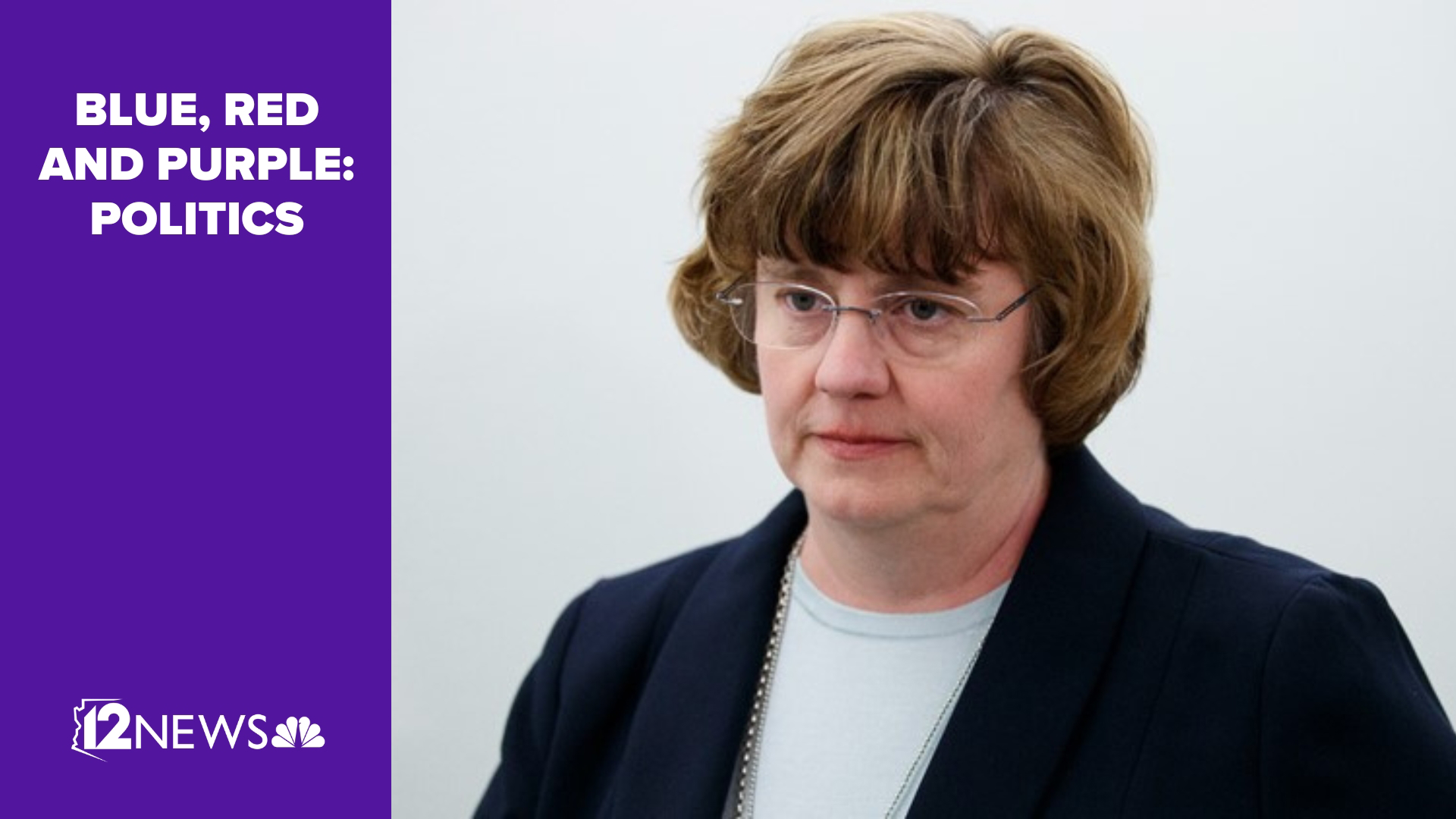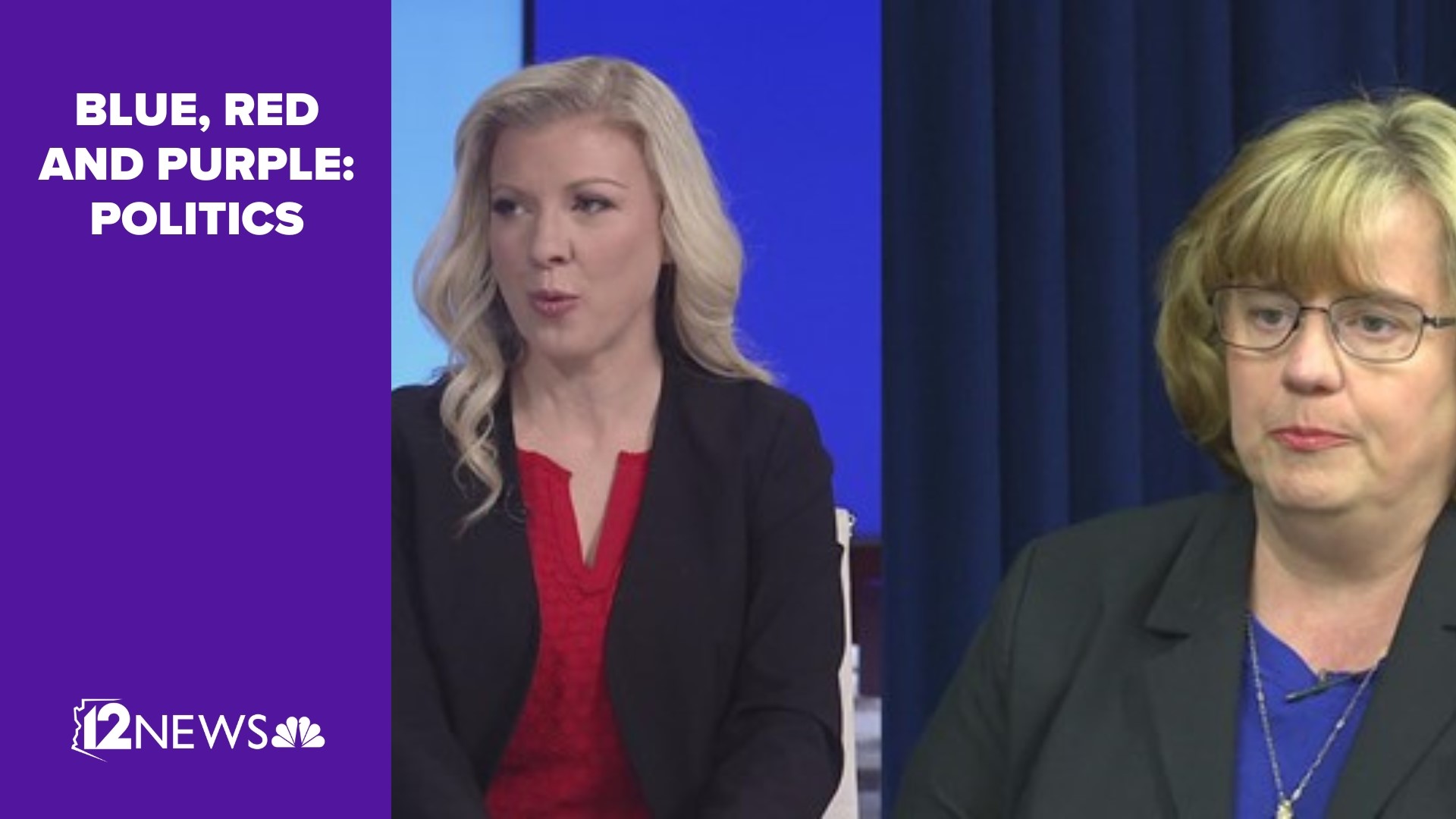PHOENIX — Rachel Mitchell is no novice.
The Phoenix native worked for decades as a sex crimes prosecutor. She took the national stage in 2018 when she questioned now Supreme Court Justice Brett Kavanaugh during his confirmation hearing. And as of April 2022, she's been the acting County Attorney for Maricopa County.
Former Maricopa County Attorney Allister Adel left the office less than two years after she was elected in 2020.
The Maricopa County Attorney’s Office came under scrutiny for an October 2020 case, where the agency was accused of working with police to overcharge Black Lives Matter protesters with gang charges. All charges were later dropped.
Adel faced controversy of her own like seeking treatment of alcohol abuse and at least 180 misdemeanor cases from 2020 that were dropped because her office didn’t take action in time. Adel resigned from her role in March 2022 after repeated calls for her resignation. She later died in April 2022 from health complications.
Now, Republican Rachel Mitchell is fighting to keep her seat as the county's top prosecutor in a special election against Democrat Julie Gunnigle.
Here's part of our interview with her about her campaign and top priorities.
What made you want to become an attorney?
RM: I actually went to law school to be a prosecutor. I always was attracted to the job because I thought it was interesting. I thought it made a difference.
What have you noticed about the office over the years?
RM: I've noticed that leadership really matters. I've worked for a number of different county attorneys. I started under Rick Romley and it was interesting. When Rick left and we got the next county attorney, there was a definite difference in philosophy and that quickly permeated the the lower levels, the line attorneys. So that is incredibly important that the leader be engaged, have a vision, communicate that vision and really be focused on doing the right thing.
What is your top priority right now in the office?
RM: My top priority has been initially to get the numbers back up for personnel, because without that, you can't really execute all the other things that you want. And that includes further reducing backlogs of charging as well as focusing on violent crimes and certainly the fentanyl crisis.
You've stated you've reduced the vacancies of the roughly 1,000 person office from 20% to 10%. How have you been able to reduce backlogs when you're not at 100% staff?
RM: It's a prioritization on that. Working with the clerk's office to make sure that there's personnel on the other side, prioritizing personnel for those particular areas has been a big factor. We still have a charging backlog. It's been reduced, but we need to keep going on that. Because I have to be very careful. I can't just charge everything at once and then not have the personnel to prosecute it.
How did backlogs build up?
RM: We've been down in personnel and there has not been a coordinated plan to change that. Over the last couple of years, the attrition rate has gone up. Some of that was due to COVID. Some of that was due to morale, office morale issues, and what we're seeing now is all the numbers are going in the right direction. So morale is up. Personnel is up. Backlogs are down.
You put out a statement saying you will not prosecute women seeking abortion. Why come out and say that?
RM: Because my opponent had been all over the media saying that women would be prosecuted. And frankly, the law doesn't allow that. She had been saying that I would prosecute women. And so I wanted to alleviate everybody's concerns that number one, I'm not going to because I actually follow the law. And the law does not allow it.
I think there needs to be a definitive statement from either the court or the legislature as to what the law is. The Dobbs case returned the issue to the state. So, I think the state needs to take stance one way or the other on what the law is in Arizona, whether that's done through the legislature, the courts -both are potential.
Has your office seen any cases at this point in time?
RM: Not at all. We don't have a single case related to abortion.
This office has come under scrutiny the past couple of years for a variety of controversies. How do you restore trust that the county attorney's office is doing its job?
RM: We've worked to restore trust having regular news conferences every other week to stand and answer questions that whatever you guys want to ask. We regularly communicate with the press outside of that. So there's transparency. We've increased transparency on our officer-involved shootings, outward facing statistics. We're working on increasing or changing the policy within our office that allows senior leadership opportunities to hold the county attorney more responsible, is something that I struggled with when I was a division chief under the previous administration. So, just different things. We're also addressing issues. When I came into office, there was an attorney who was part of the protest cases. I terminated her employment. We're acting quickly on issues and we're being very open about them as much as you can be with employment issues so that people understand that we're going to hold ourselves accountable.
What went into the decision to fire the prosecutor accused of wrongfully charging protesters as gang members?
I don't like to terminate anybody. But when something comes to the point where it needs to happen for the integrity of the office, because of the egregious misbehavior, I have to make that call and I'm willing to make that call. I have made that call.
You said that crime, especially violent crime, is your top focus. When do you think is appropriate for diversion to be applied versus incarceration?
RM: I think we have to look at each of the cases. It's unacceptable to me to just paint everybody with a broad brush. And so we have to look at the cases. But generally, what we're talking about with diversion-type cases are property offenses, drug-motivated offenses, meaning property crimes to fuel a drug addiction. So those are some of the ones that we really focus on for diversion. And then there are the cases that pretty much most of my career was taken up with, which is prosecuting people who've done horrendously bad things, particularly to children and to women, as well. And that's a different treatment.
Do you think there's been corruption in the Maricopa County Attorney's Office over the past few years?
RM: No, I don't think there's been corruption. There have been problems with the cases, with the office. There have been issues with individual attorneys. But by and large, that office is made up of people who are not getting rich, they're not getting famous, they're not getting glory. They're just really hardworking public servants.
When you have a situation like the controversial protest case, how does that impact the trust of the office?
RM: That situation was more impactful, in my 30 years in that office, it was more impactful on the reputation of that office than anything else I've seen. And that was part of what went into my big part of what went into my decision. It's unacceptable because it gives a black eye to everybody else in that office who is doing a good job and being a public servant like they should be.
DECISION 2022
Arizonans will go to the polls this November for the midterm elections. Here's everything you need to know leading up to election night.


